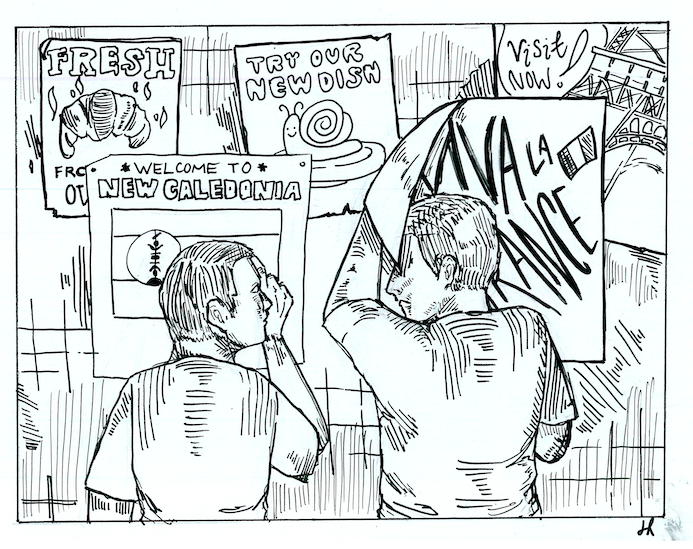On November 4, 2018, blue-red-green flags were waving on the streets of New Caledonia. These flags symbolized the Kanak and Socialist National Liberation Front, a movement supporting the independence of the island nation. New Caledonia, officially Nouvelle-Calédonie, is part of French overseas territories. Remnants of the vast colonial empire that once spanned territories from Québec to Indochina, modern Overseas France now administers small and scattered lands, which, if combined, comprise a territory roughly equal to the size of North Korea.
Despite being an isolated, distant island, the recent independence referendum was a significant debate. Six months prior, French President Emmanuel Macron visited the island, where he expressed hopes that New Caledonia would stay under French administration, calling the island “France’s Pacific jewel”.
The referendum results may have surprised many: the people of New Caledonia decided to remain under French authority — in other words, rejecting their independence. In a postcolonial world, where each nation is granted the right to self-determination, choosing to stay under the control of a colonial overlord seems to be a strange decision. However, there are some advantages of staying under the authority of another state, particularly in such a case of imbalanced global power.
Since New Caledonia is a French territory, local people have French passports. The French passport is ranked third in the Global Passport Power Rank, giving its holders the ability to visit 165 countries without any visa. By comparison, the passports of New Caledonia’s neighboring islands Vanuatu and Fiji are placed much lower in the ranking, at 31st and 46th places respectively. But for the island’s inhabitants, the benefits of holding French passport are not limited to traveling. As they are recognized as French citizens, New Caledonians have the opportunity to study at French universities and receive treatment in French hospitals. Consequently, New Caledonia’s standard of living is significantly better than that of neighboring independent countries — its GDP per capita is ten times higher than in Vanuatu.

The case of New Caledonia is the latest example that shows a new tendency in how nations fight for their independence in the modern era. Nationalism is still prevalent in many countries across the globe, but when economic benefits or losses become a dominant factor, the idealized dream of independence is diminished. Corsicans, who historically brought trouble to the French, are no longer protesting against the central governance from Paris. Even the latest victory of Corsican nationalists in the local parliament does not change the situation — the winning party promises to fight for greater autonomy, but not for independence. On the other hand, massive protests in Barcelona last month showed that Catalonians are ready to secede from Spain at the soonest opportunity. Both of the cases can be explained from an economic point of view — while Corsicans are largely dependent on the financial aid and subsidies from France, Catalonian economics contribute almost one-fifth of Spain’s GDP. The romanticism of brave soldiers fighting for independence has been left in the past; it is now money, not guns, that decides the fate of the nation.
Since the decolonization period of the 20th century, discussing whether certain nations should be independent or not has become a sensitive issue, especially when it comes to arguing in favor of rejecting independence. Commonly seen arguments for staying under the authority of the colonizers are often borderline racist, slipping into justifying the modern version of “the white man’s burden”. Of course, a noticeable portion of former colonies are experiencing corruption, unstable or oppressive governments, or even civil wars. Some economists claim that this is due to lack of institutions that could promote growth and development. While this may be true, a lack of infrastructure was not a primary cause: these nations had institutions before, only to be destroyed by colonizers. Therefore, the nations that remain loyal to their colonizers now do so primarily because they cannot risk losing the what few properly functioning institutions they have. They are afraid to share the fate of a neighboring “failed state”.
Is there a solution to the problem? Well, if there were a working solution, neither New Caledonians nor Corsicans would have voted against their independence. While some experts are trying to find a possible solution, others don’t even recognize the problem as long as people from both sides remain superficially satisfied. As for now, there are still at least twenty nations that do not have a right to self-governance. Whether that list will decrease or not — no one knows.

